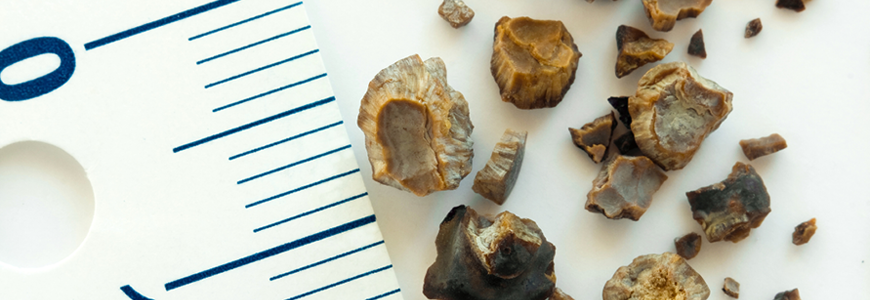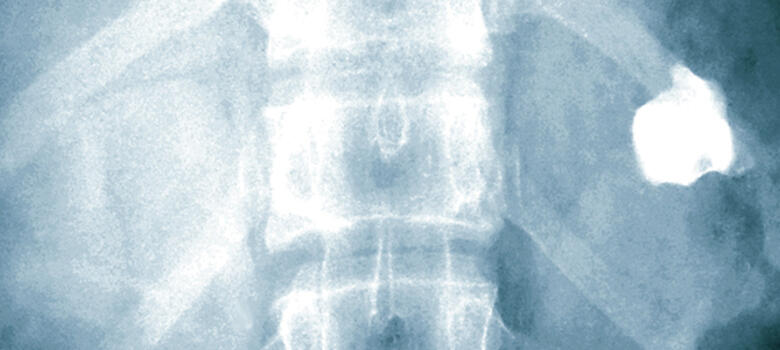Duke draws patients from long distances to take advantage of its expertise as one of the few centers in the country to specialize in treating large and complex kidney stones—but some local providers may not be aware of the advances in invasive and noninvasive procedures that can benefit patients with challenging problems.
Michael E. Lipkin, MD, a urological surgeon who specializes in complex stones, points to several advances that physicians may find encouraging in considering a referral.
The first is the evolution of percutaneous nephrolithotomy (PCNL) to be less invasive and safer for the removal of stones that cannot pass on their own because of their size or location.
“Sometimes patients and even physicians are unaware of changes in technique and technology that have allowed us to reduce the morbidity and improve the efficacy of PCNL,” Lipkin says. “The majority of patients go home the next day after the operation with no drainage tubes.” Duke’s volume—150 to 200 of these procedures a year—is sufficient to know that its outcomes compare favorably with those reported in the literature.
To refer a patient, log in to Duke MedLink or call 919-684-2446.
Second, patients with complex medical histories may benefit from a referral because Duke’s expertise means that even some complex cases can be treated with less invasive techniques such as ureteroscopy.
“There are cases with technical challenges, including patients who have had their bladders removed, patients who have had prior surgeries, and patients with significant stone burden that we can treat ureteroscopically,” Lipkin says.
Finally, in some cases, the stone itself may appear rather routine, but a patient’s comorbidities may make any treatment a challenge. “I routinely perform ureteroscopy with laser lithotripsy in patients who need to be on anti-coagulation,” Lipkin cites as one example.
Other examples of patients who require special care include those who have had transplants, those with a significant history of heart disease, or those with conditions like Duchenne’s muscular dystrophy. These patients may benefit from the integrated, comprehensive care of an academic center compared with the more fragmented care patients can experience in smaller settings.
“At Duke, we have teams that take care of pretty much anything,” Lipkin says. “From a pre-operative clinic that works with patients to modify their risk factors in ways that improve surgical outcomes to outstanding surgeons with expertise in stones to excellent advance practice providers, nurses, and other team members.”


